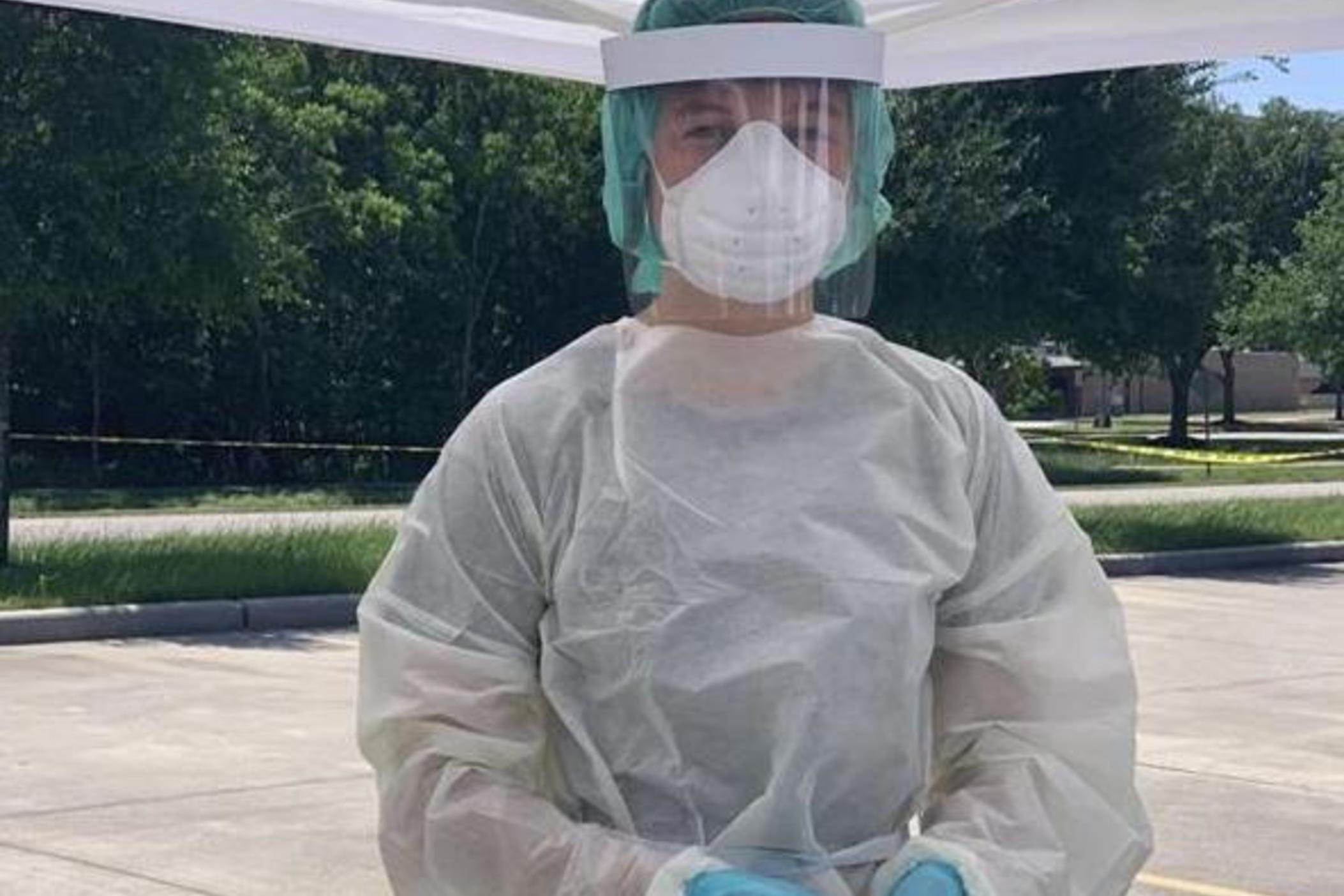Section Branding
Header Content
Georgia Tech Student Volunteers At COVID-19 Test Site, Then Falls Ill With Coronavirus
Primary Content
Kyra Halbert-Elliot, a third-year Georgia Tech student, was unsure if she had coronavirus when she started experiencing symptoms. She had trouble breathing, was experiencing pain in her throat and lungs, and felt a shortness of breath with any bit of movement.
The biomedical engineer major said she was volunteering for the Medical Reserve Corps in Houston as a COVID-19 test taker and took every precaution possible to prevent any contamination. She wore face masks, gloves and followed other safety measures.
She also had not gone out much for anything, besides doing her volunteer work.
Days later, Halbert-Elliot tested positive for the coronavirus. She shared the news on her Facebook page on July 8 as part of a reminder of how important it is to wear a mask in public and for colleges to mandate them.
Halbert-Elliot, 20, quarantined for two weeks after she tested positive and returned to her volunteer work, but she still has a message for other college students and the public.
"Keep wearing your mask, keep self-isolating and social distancing and keep listening to health professionals," Halbert-Elliot said. "Their guidance is based on the data that we have and their own knowledge of how this virus works."
Halbert-Elliot volunteered as a test taker in her hometown of Houston ever since April after Georgia Tech canceled her study abroad program due to the pandemic. Texas has become a major hotspot with more than 537,000 coronavirus cases, including over 9,900 deaths, according to the Centers for Disease Control and Prevention.
When she started helping at the Medical Reserve Corps, she worked at a stationary site where her team did tests for about 1,000 people a day.
"I started researching, and I knew that I wanted to help in any way that I could as much as I could, especially because I wasn't a part of the high-risk group," Halbert-Elliot said. "When I found this opportunity through a volunteer website, I knew that this is the perfect opportunity to support my community and gain clinical experience for medical school."
As the summer went on, Halbert-Elliot moved to a mobile unit that did about 200 tests daily. She said she enjoyed the transition and has grown closer to the team that she works with on a more consistent basis.
"They're a much smaller team, so we know each other well. It's the same group every week," Halbert-Elliot said. "It's become a really great and supportive community, especially when the days are very long or hot, or sometimes people come in and aren't the most friendly."
Most people were kind and understanding, she said, but some would get frustrated with long lines. If a bunch of cars arrived at the same time, the lines would get backed up. Other people got nervous from the swab test or frustrated by the Texas heat and powerful storms. "We always listen to people’s concerns and try to make the experience as easy as possible," she said. "We strive to treat everyone with kindness and respect."
The Tech student said she liked volunteering at the mobile units because the small number of people on her team gave her a chance to be more hands-on with the COVID-19 testing process. Halbert-Elliot said she would usually spend three to four days a week at the testing site doing everything from directing cars through the mobile site to swabbing the patients during their tests.
In addition to her volunteer work, Halbert-Elliot took classes online and conducted virtual research for Tech's Cardio Fluid Mechanics Lab. Despite having to manage three different commitments over the summer, she said she does not get overwhelmed by her work.
"I really enjoy getting to go test people and support my community. I really enjoy the research that I do, and the classes I picked for a major that I love," Halbert-Elliot said. "So, I'm in a very fortunate position where having all these commitments doesn't necessarily feel like a burden. It's more exciting than anything."
While Elliot has fully recovered from the COVID-19 virus, the pandemic continues to spread into the wider community. More than 5.2 million people in the United States, including 231,000 in Georgia, have tested positive for coronavirus and over 165,000 people have died. In Georgia, more than 4,500 people have died from COVID-19.
Halbert-Elliot said she believes her work this summer has prepared her well for her future.
"This summer has cemented my commitment to medicine, and facilitated my transition back to campus by reminding me of my ‘why,'" she said. "I want to be a doctor, and I want to bring my knowledge as an engineer to being a doctor. I want to bridge the medical and the engineering fields in order to provide the best care for my future patients. I wish I could continue to volunteer with my team this fall, but I know that I will be able to be a part of ‘Jackets protecting Jackets’ and volunteer in Atlanta."


